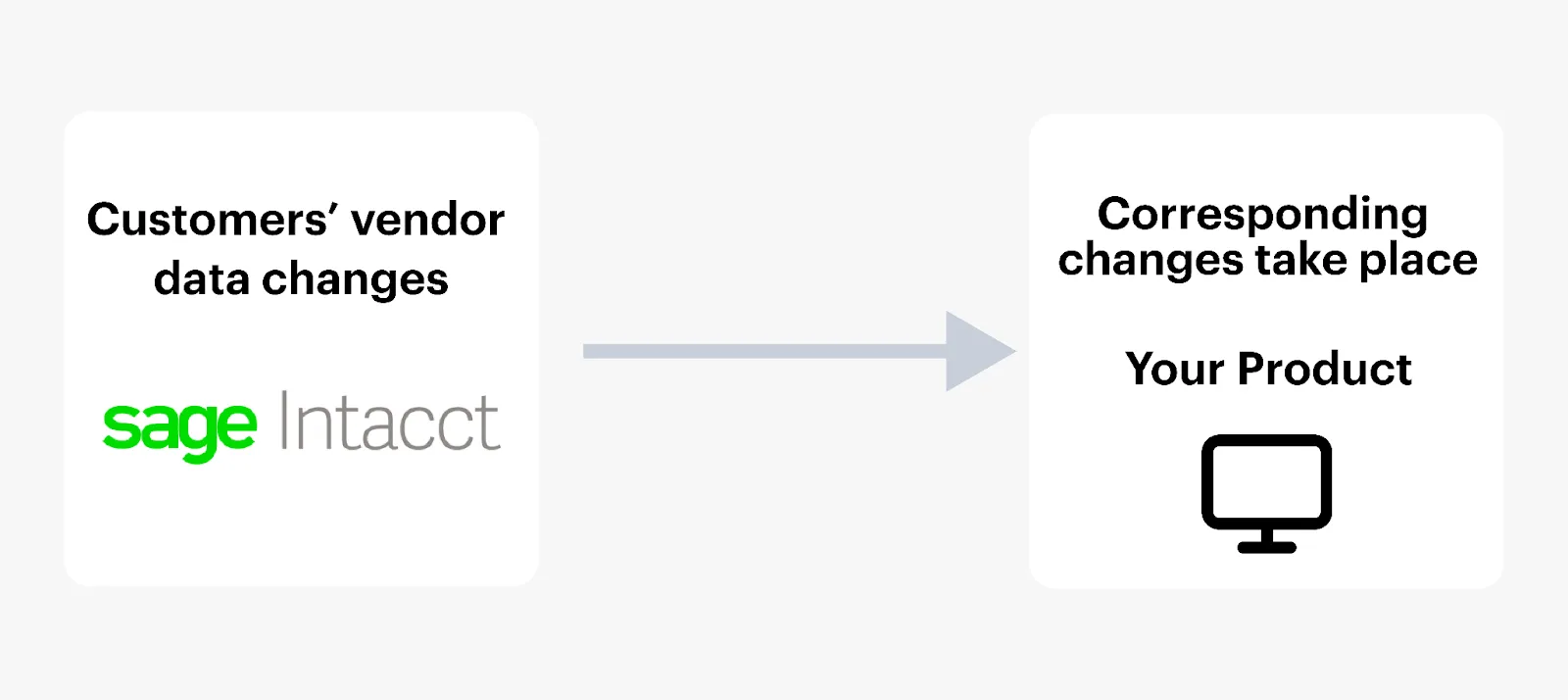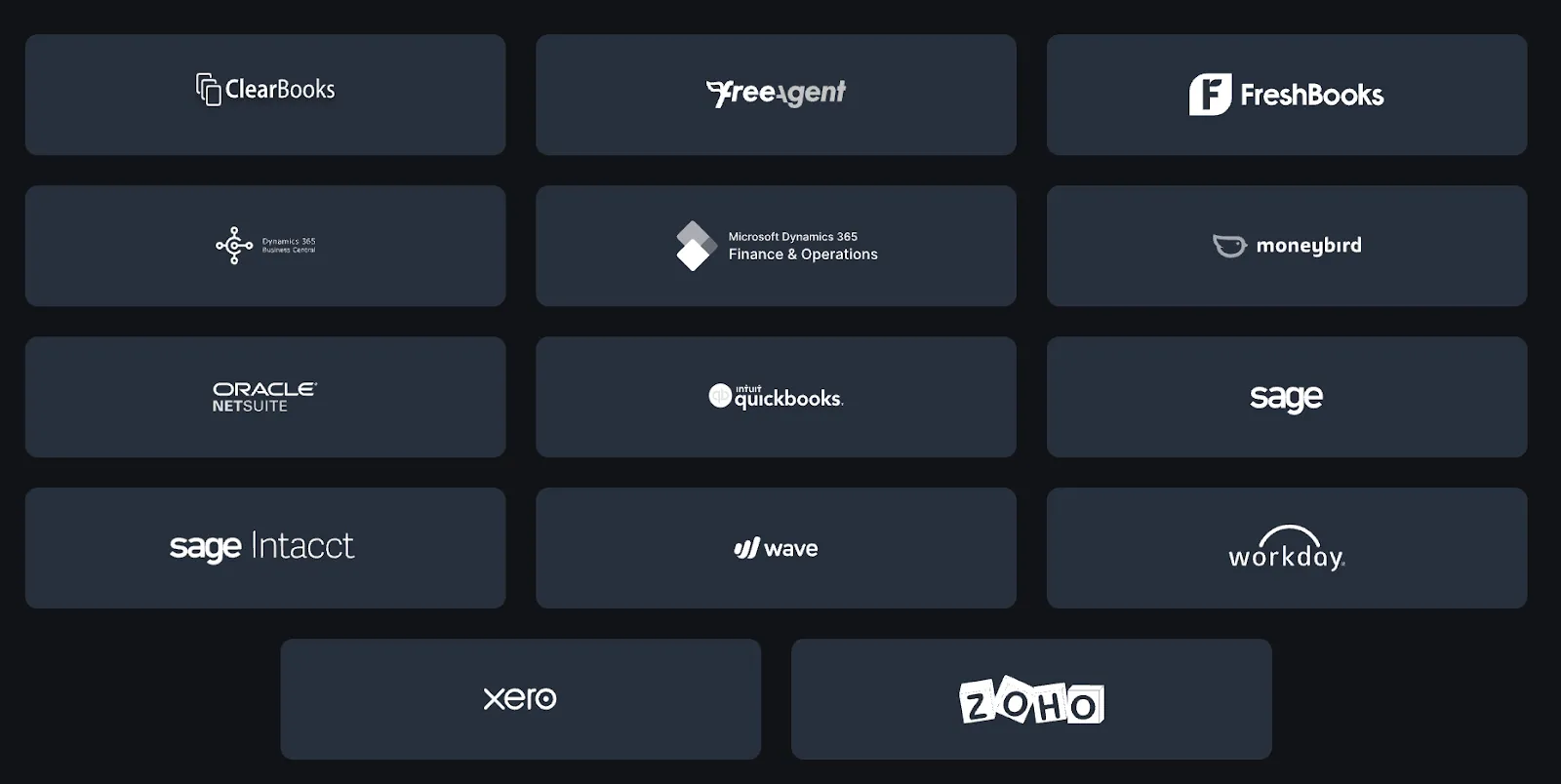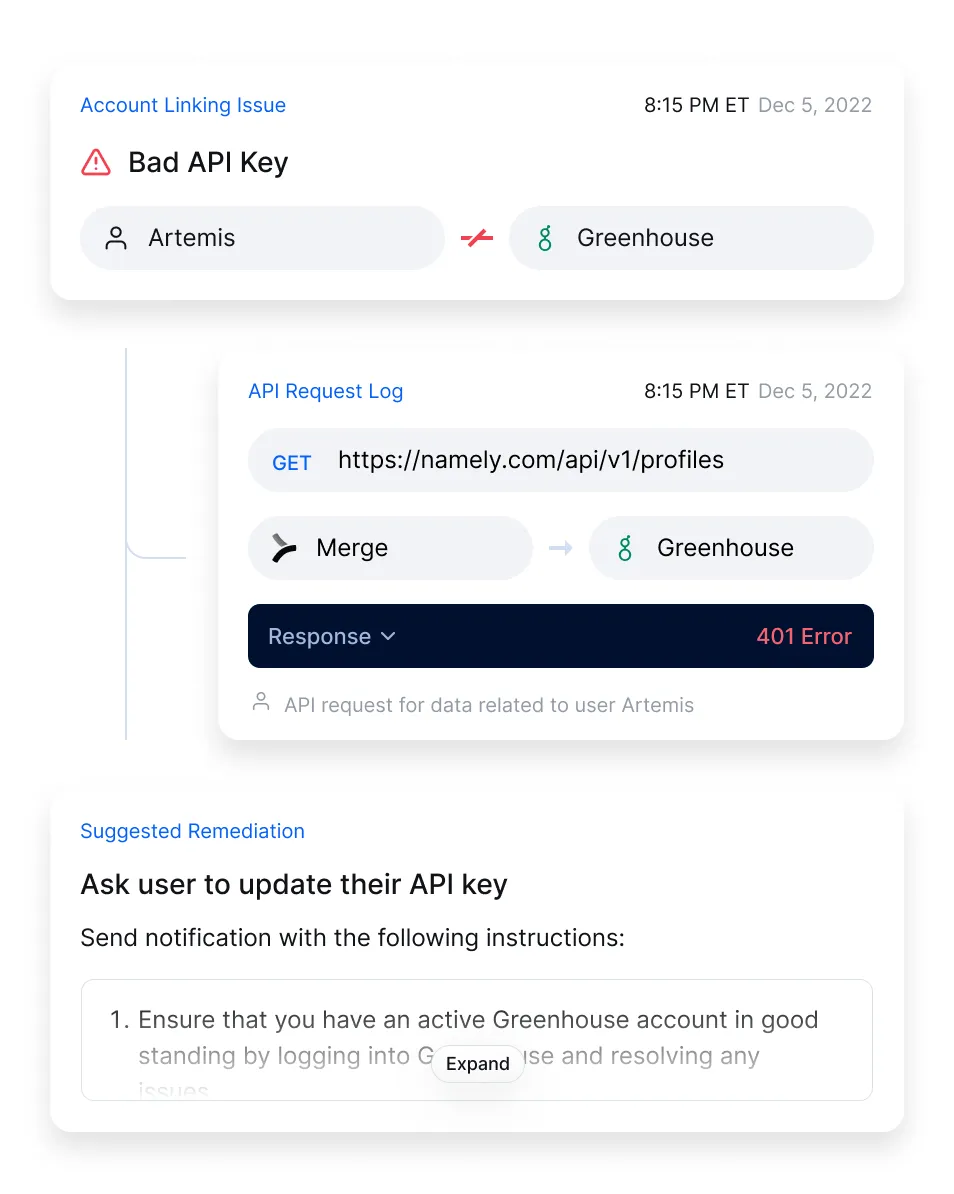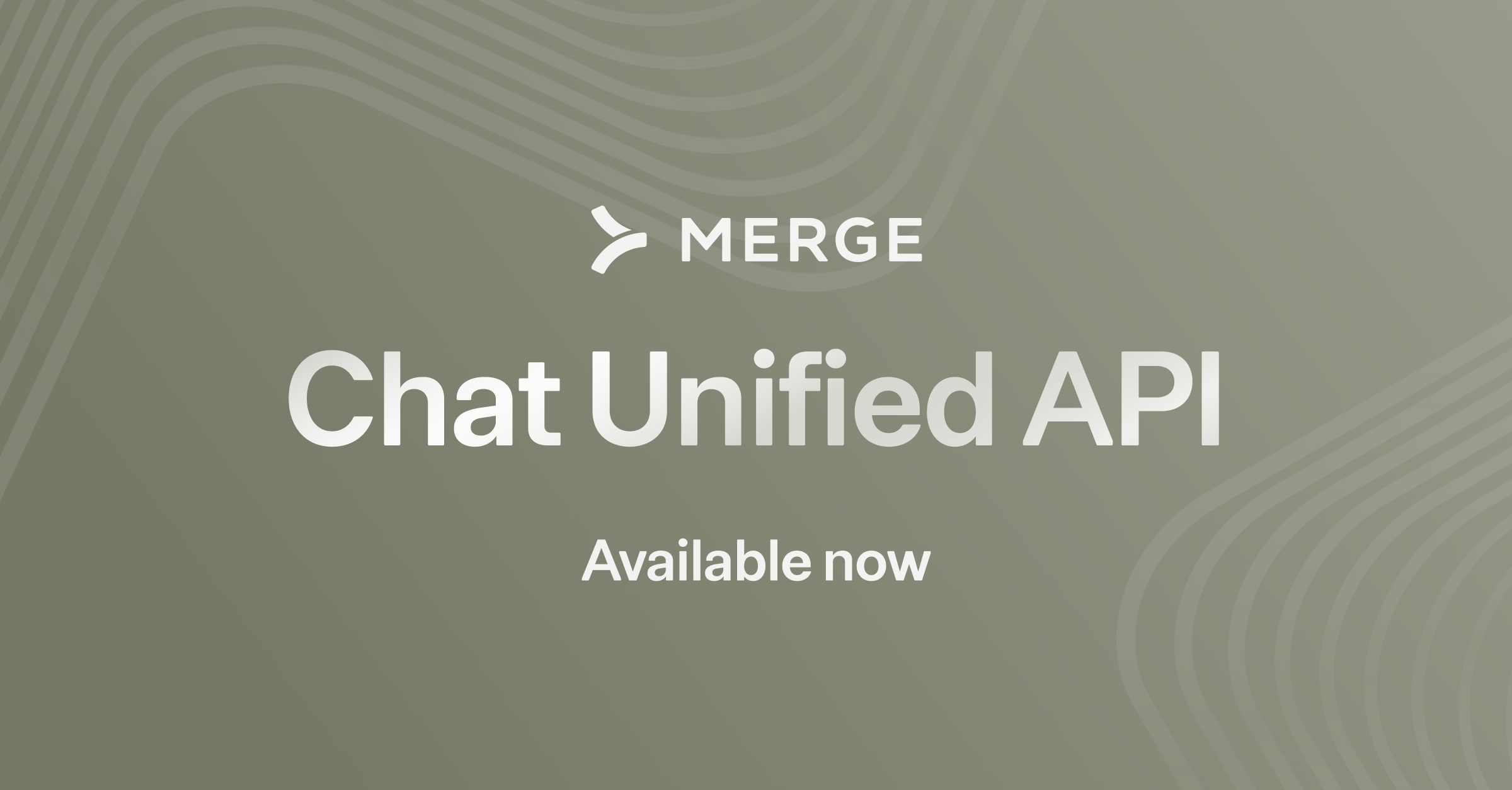Sage Intacct API integration: everything you need to know

Sage Intacct can power a wide range of financial processes for your company, from managing vendor invoices to creating and sending your own to building out and leveraging real-time dashboards and reports.
Given all the valuable data the platform collects and processes it supports, your other applications and—in some cases—your product can benefit from connecting to its API.
We’ll break down impactful Sage Intacct integration use cases, but first, let’s align on what it is.
What is the Sage Intacct API?
It’s any endpoint(s) that Sage Intacct makes publicly available. These endpoints let you access specific data and functionality in Sage Intacct, whether that’s related to a general ledger, cash management, accounts payable/receivable, employee expenses, and so on.
Organizations typically build to Sage Intacct’s API for one of two reasons: They need to sync data between their own instance of Sage Intacct and the another application(s) they use; or they need to sync data between customers’ instances of Sage Intacct and their product.

Related: How to integrate with QuickBooks Online’s API successfully
Sage Intacct integration examples
Lets break down a few internal Sage Intacct API integrations and then cover a couple customer-facing use cases.
Process orders effectively
Say your employees use a procurement solution, like Coupa, to find and request specific office equipment and devices.
To help your finance team create and send accurate purchase orders on time for each requested transaction, you can integrate the procurement solution with Sage Intacct and build the following sync: Once there’s a purchase requisition in the procurement solution, a fully-populated purchase order gets created in Sage Intacct.

Manage payroll easily over time
If you use Sage Intacct to manage payroll, you’ll need to keep employee data accurate at all times, as any discrepancies can lead to missed payments, over/under payments, etc.
To help you keep payroll data accurate in Sage Intacct, you can sync it with your HRIS solution (e.g., Workday) and implement the following flow: Any time an employee is added, certain employee fields change (e.g., job title), or the employee is removed from the HRIS, the associated changes take place within that employee’s Sage Intacct profile automatically.

Related: Examples of integrating with Xero
Feed financial data to your ML model to power your product’s AI features
Say you want to build AI features in your product that help customers ask questions on their financial data, build custom reports, and more via natural language.
To power these features, you can connect your product with customers’ instances of Sage Intacct (among other accounting systems) and, on a predefined frequency, add up-to-date financial data, like general ledger transactions, contacts, accounts, and more to your machine learning model.

Related: Common retrieval-augmented generation (RAG) use cases
Help users manage SaaS subscriptions in your product
Say you offer a SaaS management solution and need to help users access all their vendors. For each vendor, you also need to have previous transactions, contract start and end dates, number of seats available, and more within your platform.
To enable this, you can connect your product with customers’ instances of Sage Intacct (among other accounting systems) and sync vendors and the associated fields you care about with your product on a recurring cadence (e.g., every 24 hours).

Best practices for building to Sage Intacct’s API
Regardless of whether you’re looking to build internal or customer-facing integrations with Sage Intacct, you should keep these tips in mind.
Authenticate with the right subsidiary/subsidiaries
You’ll likely need to access either all subsidiary data or data from a specific one.
In the case of the former, you shouldn’t pass any value in the <code class="blog_inline-code">location id</code> tag in the authentication request. This lets you authenticate at the top-level subsidiary of a Sage instance, meaning you can access all of the underlying subsidiaries’ data.
If, however, you want to access a specific subsidiary, you should pass a value in the <code class="blog_inline-code">location id</code> tag within the authentication request to specify the subsidiary you’re interested in.
Use audit trails to detect deleted records
To help you identify deleted objects in Sage Intacct over time, you can hit the audit trail endpoint with <code class="blog_inline-code">ACCESSMODE = ‘D’ </code>.
In addition, you can utilize the <code class="blog_inline-code">OBJECTTYPE</code> field to determine what type of object was deleted, and the <code class="blog_inline-code">OBJECTKEY</code> field to determine the unique identifier of that object.
Learn more about Sage Intacct’s audit trail endpoint here.
Study the relevant entity relationship diagrams before calling their endpoints
Sage Intacct’s entity relationship diagrams detail how different modules in the solution interact.
Understanding and accounting for these relationships can be crucial in avoiding significant errors.
For example, when a purchase order gets turned into a vendor invoice in the purchasing module, a corresponding accounts payable bill gets created in the accounts payable ledger. To prevent double counting transactions, you’ll need to avoid pulling AP invoices from one of the ledgers.
Integrate Sage Intacct and several other accounting platforms with your product via Merge’s Unified API
Merge lets you integrate with more than a dozen accounting integrations—including Sage Intacct—through its unified API.

In addition, Merge offers comprehensive, normalized Common Models—which span everything from balance sheets to invoices to journal entries to tracking categories. And the platform provides advanced features for syncing custom data, such as Remote Data and Field Mapping.
Finally, the platform offers integration observability features—which include fully-searchable logs, automated issue detection functionality, and holistic performance data—to help your customer-facing teams uncover, diagnose, and resolve integration issues quickly and easily.

Learn more about using Merge to add accounting integrations to your product by scheduling a demo with one of our integration experts.
Sage Intacct API FAQ
In case you have any more questions on Sage Intacct, we’ve addressed several more below.
What is Sage Intacct’s API rate limit?
Each client application can make up to 1,296,000 requests per day, and each application can make 150 concurrent requests at a given point in time.
You can learn more about Sage Intacct’s rate limits in their documentation.
How does Sage Intacct’s API approach pagination?
Sage Intacct allows you to implement pagination in requests through two parameters: page and items_per_page. The former lets you specify the specific page you’re interested in, while items_per_page allows you to define how many items you’d like to receive per page.
You can use either of these parameters or include both in a given request to ensure you receive the precise information you need.
You can learn more about these parameters, and read about how Sage Intacct’s API responds to requests that include pagination in their API documentation.
What is Sage Intacct’s API pricing model?
Their pricing model isn’t explicitly laid out on their site. Like many other API providers, their API pricing will likely depend on the number of requests you need to make in a given time period, the specific data and functionality you need to access, and amount of concurrent requests you plan to make.
To get a more concrete idea of their API pricing plans, you can request pricing information on their site.







.png)


